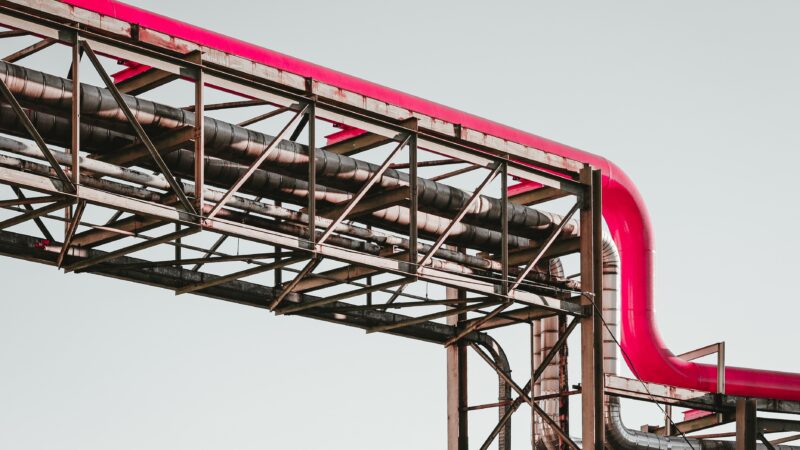As Russia is poised to invade Ukraine, with a build-up of as many as 100,000 troops on the border and a concurrent supply of blood banks, commentators are concerned with what this might mean for the rest of the European continent. It may seem selfish to consider the impacts on Western Europe of a ground war in Ukraine, but an inability to think clearly about such ramifications led to a series of ‘forever wars’ in the Middle East, a refugee crisis in the Mediterranean, and the precipitation of homegrown terrorism.
A recent Spectator article, from Owen Matthews, considered that economic sanctions on Russia would likely be enough to deter any invasion, as Putin does not want or need ‘more chunks of Ukraine – there’s no strategic, political or economic upside in fighting an attritional war over open country’. Perhaps not, and the cost of war would certainly be prohibitive, but this presumes that the gas lines to Europe will be turned off, at any point; Russia would not want that, as it would help to cover any military spending, and Europe cannot even consider it, as Germany closes down her nuclear plants and British energy bills are set to soar.
But Russia can destabilise Europe in other ways; and the easiest way is to cause a refugee crisis.
There are three main reasons why this is a likely possibility at this point. First, the Russian style of warfare is one that easily displaces populations: their typical attack plan is to besiege and pummel cities into submission, either with artillery or air support, and concurrently blockade ports until the population submits. The experiences of Russian tactics in Chechnya and Syria are evidence of this: in 2000, before nine years of attritional warfare would see Chechnya reincorporated into the Russian Federation, the Siege of Grozny decimated the city to an extent not seen since the Second World War. An estimated half a million people lived in Grozny by the time of the siege; today, there is just over half that number.
Syria is the same story, with a few details changed. Rather than commit a ground presence, Russia engaged itself in the Syrian Civil War mostly in the air, with what was ultimately a five-year campaign that targeted anti-government positions, but killed as many as 2,000 civilians within the first six months. The refugee fallout of the Syrian Civil War cannot be laid solely at Putin’s door, but it is undeniable that the Russian style of warfare played a significant role in its creation.
Then there is the actual population of Ukraine. Any ground war will not be a repeat of 2014, for a number of reasons, but the most important is the lack of support Russia and Putin experience amongst the Ukrainian population. The Annexation of Crimea was justified somewhat on the historical basis of Russia’s connections to the population and the resurgent separatism in the region; in Western Ukraine, there is no such support, and only 17% of the population hold any warm feelings towards Russia.
Whilst it is never a certainty that a Russian invasion would displace the near-60% of Ukrainians who hold negative attitudes towards Russia, the rules of migration have drastically changed, and populations across the world are much more prepared to leave their homelands if forced to. Moreover, of the 25 million Ukrainians who hold negative attitudes, if only 1% of that number – 250,000 – decided to head West, Eastern European nations would be facing a series of very difficult questions indeed.
Which brings us to the third reason why a refugee crisis is likely; Ukrainians are already heading West, and have done for some time. Economic trends across Europe have seen improved national economies in the Eastern European nations, the Visegrad Group, to the extent that they are actually facing a labour shortage. Consequently, worker flows to Western Europe have slowed, and itinerant workers from Romania and Ukraine have increased in number; so much so, that there are over 300,000 Ukrainians in Poland alone.
This figure has been manageable because of its gradual growth. The same number turning up on the Polish border would not be met with the same warmth; indeed, we already see this with the crisis on the Polish-Belarusian border. Accusations that the Belarusian government has been engineering the crisis are credible, but not the whole picture: Lukashenko stands by Putin very closely, and has accused the West of trying to ‘drown the region in blood’. It would not be beyond the bounds of possibility for the Russian regime to be orchestrating the refugee crisis on the Polish border, but even if they are not, who is to say that they will not in future?
Almost no-one is discussing the reality that the next European refugee crisis is brewing in Ukraine, and the hardest truth to face up to is it might not even need Western nations’ involvement to erupt. The hard questions Europe has faced for nearly a decade are about to get harder.



